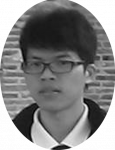1st GNNet Workshop
Graph Neural Networking Workshop
Co-located with ACM CoNEXT 2022
December 9 - 2022
We are glad to announce the “1st Graph Neural Networking Workshop 2022”, which is organized as part of “ACM CoNEXT 2022” to be held in Rome. All accepted papers will be included in the conference proceedings and be made available in the ACM Digital Library.
Motivation
Workshop goal
The goal of GNNet is to leverage graph data representations and modern GNN technology to advance the application of AI/ML in networking. GNNet provides the first dedicated venue to present and discuss the latest advancements on GNNs and general AI/ML on graphs applied to networking problems. GNNet will bring together leaders from academia and industry to showcase recent methodological advances of GNNs and their application to networking problems, covering a wide range of applications and practical challenges for large-scale training and deployment.
We expect GNNet would serve as the meeting point for the growing community on this fascinating domain, which has currently not a specific forum for sharing and discussion.
The GNNet workshop seeks for contributions in the field of GNNs and graph-based learing applied to data communication networking problems, including the analysis of on-line and off-line massive datasets, network traffic traces, topological data, cybersecurity, performance measurements, and more. GNNet also encourages novel and out-of-the-box approaches and use cases related to the application of GNNs in networking. The workshop will allow researchers and practitioners to discuss the open issues related to the application of GNNs and graph-based learning to networking problems and to share new ideas and techniques for big data analysis and AI/ML in data communication networks.
Keynotes

Franco Scarselli
Franco Scarselli is Associate Professor at the University of Siena and one of the fathers of the GNN model. His talk will revolve around the past, present and future of GNNs.
Short Biography
Franco Scarselli received the Laurea degree with honors in Computer Science from the University of Pisa, and the PhD degree in Computer Science and Automation Engineering from the University of Florence, in 1998 and 1995, respectively. Currently, he is associate professor at the Department of Information Engineering and Mathematics (DIISM) of University of Siena. In 2013, he got the Italian scientific habilitation as full professor.
His research activity is on machine Learning, with the main focus on artificial neural networks. In particular, he is interested in the theoretical properties of standard artificial neural network models, of deep learning and neural networks for graph processing. From an applicative point of view, his focus on image understanding, information retrieval and applications involving non-standard data.
Title: Graph neural networks: history and examples of new research directions
Abstract: Graph neural networks (GNNs) are machine learning models for graph processing. The research that have given rise to those models started on early 90’s. Graphs are important in complex data domains and they naturally in modern applications, a fact that contributes to explains the recent focus of attention on GNNs. In the talk, I will sum history of GNNs from a machine learning point of view. Moreover, I will give examples of the several number of problems and new possible research directions that are generated by the variety, the complexity, and the heterogenity of the modern data. Those examples include the use of a mixed inductive-transductive learning mechanism and the generation of graphs.

Diego Perino
Diego Perino is an Engineering Manager in the Responsible AI area at Meta. Previously, he was the Director of Telefonica Research, where he lead a team of researchers in Machine Learning/Deep Learning, HCI, Security/Privacy and Networks/Systems.
Short Biography
Diego Perino works at the boundaries of research and innovation, to advance state of the art in Information and Communications Technology (ICT) areas, and ensure the successful exploitation of research outputs via technology transfer and industrial impact.
He is currently an Engineering Manager in the Responsible AI area at Meta (Barcelona, Spain). From July 2016 to September 2022 he was the Director of Telefonica Research (Barcelona, Spain). Main research and innovation projects of his team at Telefonica include AI applied to networks at large (e.g., fixed, mobile, IoT, platforms), network and system design and measurements, privacy preserving and secure AI, web privacy, SDN/NFV/edge, AI for cognitive applications. From September 2009 to June 2016 He worked at Bell Labs (Paris, France) and in 2016 six months at NICTA (Sydney, Australia). He received his Ph.D. in Computer Science from the Paris Diderot-Paris 7 university in 2009.
Title: Artificial Intelligence for Next Generation Telco industry
Abstract: Artificial Intelligence (AI) is recognized as a main driver for future telco industry business. It will lead towards increasingly autonomous and intelligent networks, will improve customer experience, and generate significant economic impact. In this talk we will present experiences in research and innovation on AI-based techniques in the telco context. We will overview several use cases, what has been shown and what still needs to be done to get the full benefits of AI for networks. Finally, we will discuss lessons learned during this process and the relevant research and innovation directions.
Disclaimer: This presentation is NOT related to any activity/vision of Meta, but rather covers work done while at Telefonica Research
Special session
GNNet would also include a dedicated special session where the top teams competing at the third edition of the Graph Neural Networking Challenge (https://bnn.upc.edu/challenge/gnnet2022/) would be invited to present the winning solutions of the challenge, providing an excellent complement to the main program.
Topics of Interest
We encourage both mature and positioning submissions describing systems, platforms, algorithms and applications addressing all facets of the application of GNNs and Machine learning on graphs to the analysis of data communication networks. We are particularly interesting in disruptive and novel ideas that permit to unleash the power of GNNs in the networking domain. The following is a non-exhaustive list of topics:
- GNNs and graph-based learing in networking applications
- Representation Learning on networking-related graphs
- Application of GNNs to network and service management
- Application of GNNs to network security and anomaly detection
- Application of GNNs to detection of malware, botnets, intrusions, phishing, and abuse detection
- Adversarial learning for GNN-driven networking applications
- GNNs for data generation and digital twining in networking
- Temporal and dynamic GNNs in networking
- Graph-based analytics for visualization of complex networking applications
- Libraries, benchmarks, and datasets for GNN-based networking applications
- Scalability of GNNs for networking applications
- Explainability, fairness, accountability, transparency, and privacy issues in GNN-based networking
- Challenges, pitfalls, and negative results in applying GNNs to networking applications
Submission Instructions
Submissions must be original, unpublished work, and not under consideration at another conference or journal. Submitted papers must be at most six (6) pages long, including all figures, tables, references, and appendices in two-column 10pt ACM format. Papers must include authors names and affiliations for single-blind peer reviewing by the PC. Authors of accepted papers are expected to present their papers at the workshop.
All accepted papers will be included in the conference proceedings and be made available in the ACM Digital Library.
Please submit your papers at https://conext-gnnet2022.hotcrp.com/
Important dates
- Paper registration deadline:
September 9, 2022September 30, 2022 (extended – HARD DEADLINE) - Paper submission deadline:
September 16, 2022September 30, 2022 (extended – HARD DEADLINE) - Paper acceptance notifications:
October 17, 2022October 21, 2022 (extended) - Camera ready due: October 25, 2022
- Workshop date: December 9, 2022
Please note that these dates are tentative and may still change slightly in the next few weeks. Please stay tuned for further updates.
Workshop Chairs

Pere Barlet-Ros
BNN-UPC, Spain

Pedro Casas
AIT, Austria

Franco Scarselli
University of Siena, Italy

Xiangle Cheng
Huawei, China

Albert Cabellos
BNN-UPC, Spain
Program Committee
- Lilian Berton, University of Sao Paulo, Brazil
- Albert Bifet, Télécom ParisTech & University of Waikato, New Zealand
- Laurent Ciavaglia, Rakuten, Japan
- Constantine Dovrolis, Georgia Tech, USA
- Lluís Fàbrega, UdG, Spain
- Jerome François, INRIA, France
- Fabien Geyer, Technical University of Munich, Germany
- Matthias Herlich, Salzburg Research, Austria
- Zied Ben Houidi, Huawei Technologies, France
- Wolfgang Kellerer, Technical University of Munich, Germany
- Federico Larroca, Universidad de la República, Uruguay
- Alina Lazar, Youngstown State University, USA
- Gonzalo Mateos, University of Rochester, USA
-
Christoph Neumann, Broadpeak, France
- Diego Perino, Telefonica Research, Spain
- Alejandro Ribeiro, University of Pennsylvania, USA
- Dario Rossi, Huawei Technologies, France
- Krzysztof Rusek, AGH University of Science and Technology, Poland
- José Suárez-Varela. Telefonica Research, Spain
- Stefano Traverso, Ermes Cyber Security, Italy

